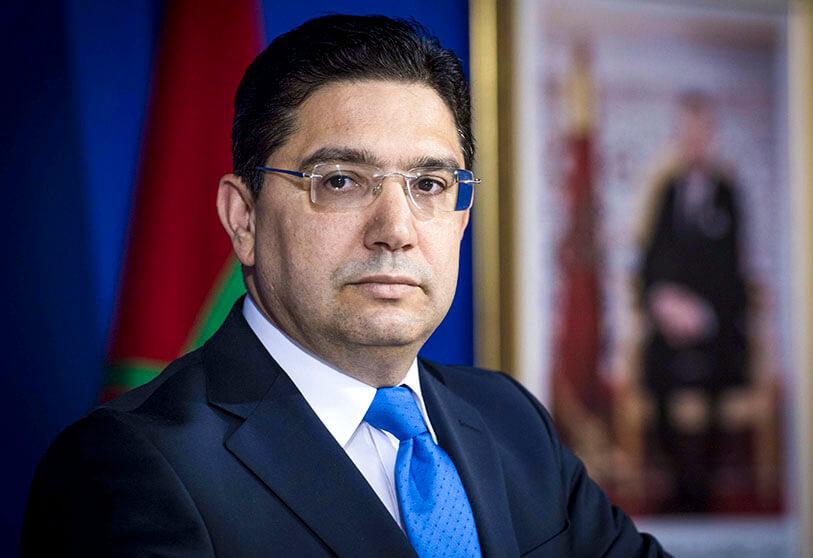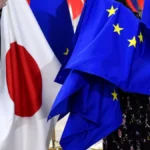In a recent interview with the magazine Le Point, Moroccan Minister of Foreign Affairs, African Cooperation, and Moroccans Living Abroad, Nasser Bourita, emphasized the significance of French President Emmanuel Macron’s state visit to Morocco, stating that it heralds a new era in bilateral relations. The discussion covered various contemporary issues, including the Sahara and the Royal Atlantic Initiative.
Minister Bourita noted that President Macron’s visit opened a “solemn page” in Franco-Moroccan relations, highlighted by the signing of an important declaration by His Majesty King Mohammed VI and President Macron. This declaration symbolizes a renewed ambition for a strengthened partnership, grounded in principles of equality among states, transparency, solidarity, and shared responsibility.
The declaration outlines key areas for collaboration, such as renewable energy and the modernization of railway and port infrastructures, which are expected to serve as the foundation for a mutually beneficial relationship. Bourita stated that the governance of this partnership will be overseen directly by both heads of state and managed by a small committee tasked with finding innovative paths and ensuring the longevity of this strengthened relationship.
The agreements signed in the presence of the King and the French President represent a new generation of commitments that reflect a shared vision, according to Bourita. He remarked that the partnership is built on an authentic collaborative approach, termed “doing with Morocco,” which emphasizes working together and recognizing the potential of Moroccan enterprises. Key projects, such as the High-Speed Train line and green hydrogen initiatives, exemplify this new spirit of collaboration.
Regarding France’s position on the Moroccan Sahara, Bourita explained that it is part of a broader dynamic initiated by King Mohammed VI, marked by explicit recognitions of Moroccan sovereignty over the region. This includes the opening of numerous consulates in Laâyoune and Dakhla and growing support for Morocco’s autonomy plan as a resolution to the regional dispute.
The minister reminded that within the European Union, nearly 20 out of 27 member countries also support this approach, emphasizing the significance of France’s position as a permanent member of the UN Security Council and an influential actor within the EU, well-acquainted with the realities of the region.
Bourita affirmed that “all conditions are now in place to move forward,” highlighting that the autonomy initiative has garnered support from over 112 countries worldwide, including many from the Americas, nearly three-quarters of African nations, and EU member states. However, he lamented that the primary actor in this regional conflict continues to favor the status quo, which adversely affects the security of the region and incurs costs for both Morocco and Algeria.
In discussing regional geopolitics, particularly regarding the Royal Initiative towards the Sahel countries, Bourita noted King Mohammed VI’s persistent refusal to view the Sahel as a burden. The King has visited Mali four times since 2012, significantly investing in training over 500 imams at the Mohammed VI Institute for Imam Training and initiating numerous development projects.
This spirit of cooperation is reflected in the Royal Initiative, which aims to provide Sahel countries with access to Moroccan ports, storage areas, logistics infrastructure, and fiber optics while assisting them with customs procedures. The goal is to break the isolation of the Sahel region.
Bourita highlighted the positive responses to this initiative, mentioning that three ministerial meetings have already taken place, with task forces established by concerned heads of state to facilitate its implementation. A reference document outlining short, medium, and long-term projects will soon be presented to heads of state for approval.
He acknowledged that France, which is also involved in the region, has its own approach to achieving stabilization in the Sahel, but emphasized that the common goal remains the region’s stability, rooted in respect for the choices of its people and a firm commitment to promoting their development.
This visit and the resulting agreements signal a promising future for Franco-Moroccan relations, paving the way for enhanced cooperation and shared prosperity in the region.
This article is originally published on .lavieeco.com








